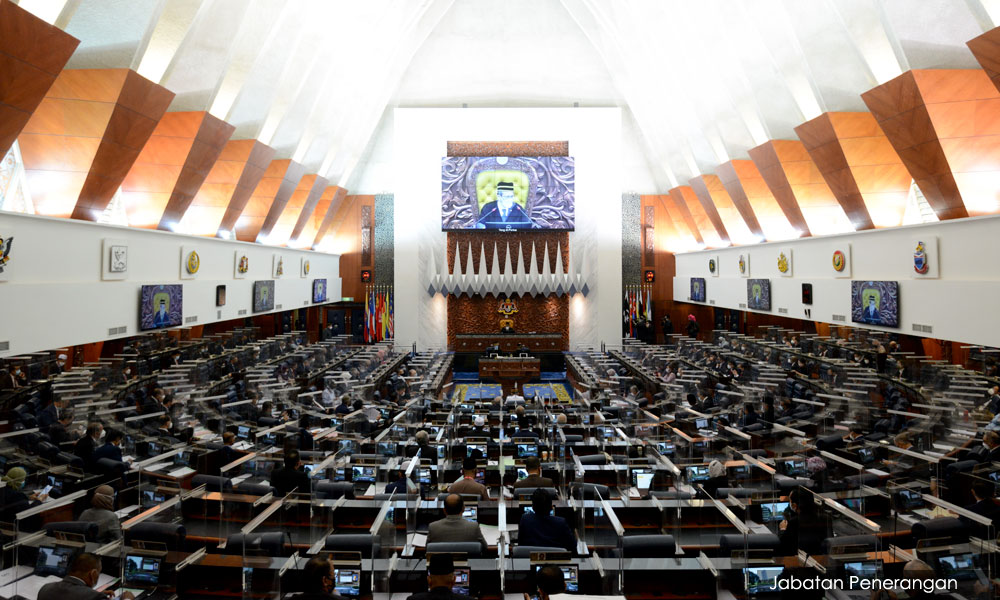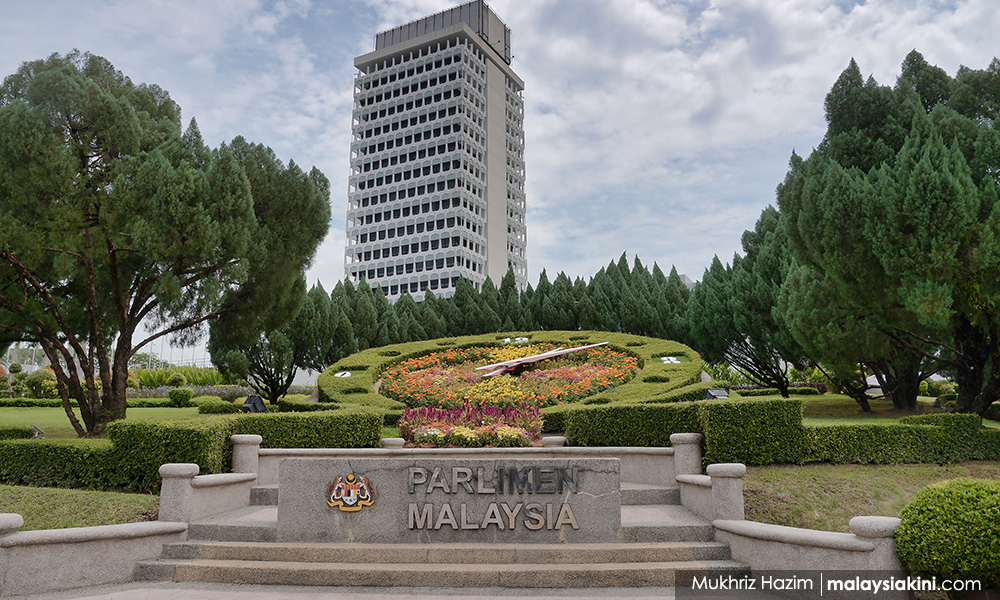Putrajaya is expected to do away with Article 48(6) of the Federal Constitution which bars an elected representative who resigns from his or her seat from contesting in an election for five years.
De facto Law Minister Wan Junaidi Tuanku Jaafar (above) said this was scrutinised by the government as part of its effort to table an anti-party hopping bill for first reading in Parliament next month.
"We are looking into Article 48(6) of the Federal Constitution. We have decided that in the (proposed) anti-hopping law, a lawmaker who is removed as an MP after quitting a party can contest in a by-election.
"This is to determine if the incumbent lawmaker was given electoral mandate due to his or her own personality or because of the party," he told a hybrid seminar dubbed "The MOU - Why it will Transform Malaysian Politics” held today.
Prime Minister Ismail Sabri Yaakob’s administration had last year inked a memorandum of understanding (MOU) with Pakatan Harapan which involved making reforms and as a result, the government is scheduled to table two constitutional amendments.
They include vacating seats of party-hopping parliamentarians and limiting the prime minister’s tenure to two terms by next month.
The next Dewan Rakyat session is slated to be held between Feb 28 and March 24.

While a term limit was among Harapan's 2018 election pledges, calls for the anti-hopping law only gained traction after the events of the Sheraton Move in February 2020, which resulted in a change of federal government and several state administrations.
Electoral reform group Bersih had also urged the government to repeal Article 48(6) of the Federal Constitution.
A matter of definition
Earlier this month, Putrajaya reportedly conducted another round of briefings and consultations with MPs on the two proposed amendments.
Besides the anti-hopping bill, Wan Junaidi also confirmed that the constitutional amendment to limit the prime minister’s tenure will be tabled in Dewan Rakyat for first reading next month.
The law minister admitted that there were constraints faced by the government while drafting both bills.
"We have not decided on the definition (of anti-hopping) and the 20 questions raised by the attorney-general have not all been answered.
"But the prime minister requested that I must table the bill in March. I said we don't have a consensus on the definition, so let the MPs decide in Parliament.
"Once we complete the draft (anti-hopping law) which we feel is the best, then we are going to table it (for the first reading in March)," he said.
Wan Junaidi added that there were also difficulties in defining the duration of a prime minister's term, so it was decided that the draft will use 10 years instead.
"What do two terms mean? We had three prime ministers since the 2018 general election. Muhyiddin Yassin was in office for 17 months and now Ismail Sabri, whose term is ongoing,” he said.

Changes in Parliament
The minister said when the two bills are tabled then the government can move on to parliamentary reforms.
"I was notified by Parliament that once we can table these two bills, then we can request the prime minister to have a special session to pass the law on the transformation of Parliament," he said without revealing the relevant bills.
Wan Junaidi noted that the Dewan Rakyat is looking at amending its Standing Order to allow a debate during the special chamber sitting.
The special chamber sitting, which was introduced in May 2016, runs parallel with the Dewan Rakyat sitting and allows matters of national importance and urgency to be discussed without interfering with the parliamentary session.
"I think the Dewan Rakyat speaker is looking at the revision of its Standing Order to allow debates in the chamber. This is another improvement," the Santubong MP said.
Wan Junaidi also noted that the Dewan Rakyat is looking to grant the power to summon witnesses to a special select committee.
"The special select committee I am speaking of is different from the existing 10 parliamentary committees. It is appointed by the government to look at certain issues, including the committee set up in the 1970s on family issues and later committees on drugs and the Penal Code.
"This is like the departmental select committees in Australia, UK and New Zealand, which can compel others to appear before the committees. Anyone who refuses to cooperate can be penalised.
"The matter will be studied by the speaker and the amendment is now ongoing," he said.
Once the matter is passed by the Standing Order Committee, the Attorney-General's Chambers will make the necessary amendments in the relevant provisions, Wan Junaidi added. - Mkini




No comments:
Post a Comment
Note: Only a member of this blog may post a comment.